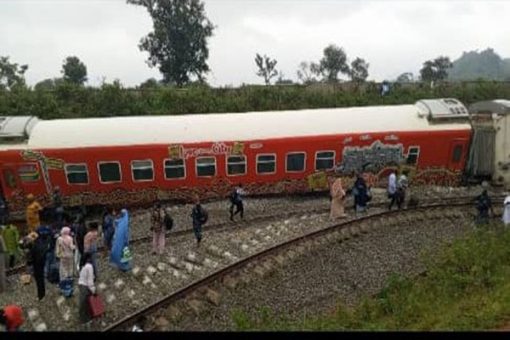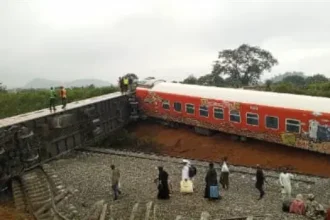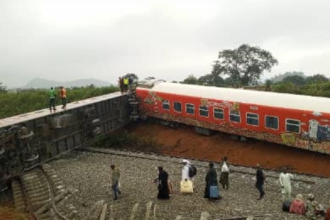The Nigerian Safety Investigation Bureau has announced that its preliminary report on the Abuja-Kaduna train derailment will be made public in 23 days.
The Kaduna-bound train derailed at Asham Station on August 26, 2025, leaving several passengers injured and causing extensive damage to railway infrastructure.
The incident also forced an indefinite suspension of operations along the busy Abuja-Kaduna corridor.
Speaking at a press briefing in Abuja on Tuesday, the Director-General of NSIB, Capt. Alex Badeh Jnr., said investigators are already working to determine the cause of the accident and recommend safety measures.
“The NSIB has appointed an Investigator-in-Charge with the qualifications to organise, conduct, and control the investigation,” Badeh said.
“The IIC has full access to the accident site, evidence, and relevant records, including the protection and custody of rolling stock, locomotives, and other evidence to prevent tampering.”
He explained that evidence protection measures were already in place, with the Bureau collaborating with railway security, police, and other agencies to restrict access to the crash site.
Badeh added: “Recorded data from the train, including speedometers, onboard CCTV cameras, vigilance control systems, and over-speed trip mechanisms, will be preserved and analysed.”
The NSIB boss noted that the investigation would cover detailed inspection of the track, switch, and infrastructure, as well as technical examinations of the locomotives and coaches.
Passengers, crew, railway staff, and first responders will also be interviewed.
On when the public should expect the first official findings, Badeh said, “Within 23 days, we should be able to release the preliminary report. It will contain factual evidence related to the derailment and provide a guide on the direction of the investigation.”
He however stressed that funding remains a challenge for the Bureau.
“Some funding has been made available, but it’s not enough,” he said. “We require more resources to train investigators, not just in aviation but also in rail and maritime sectors. With the expansion of rail services in Nigeria, there is a greater need for modern equipment and more extensive training.”







